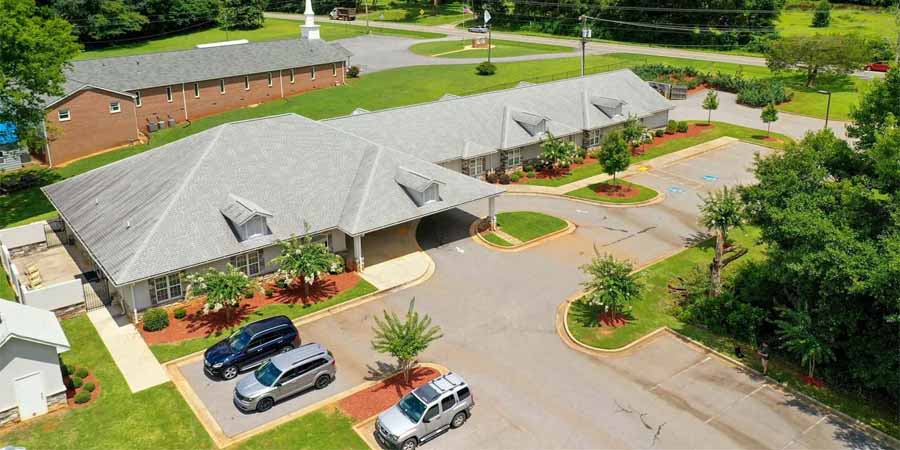Meth Addiction Treatment Centers In Atlanta
At our meth rehab in Atlanta, Georgia, we offer complex treatment to help people learn to eliminate meth use from their life and become healthy in body and mind again. Our meth detox and residential rehab provides the necessary medical and psychological support needed to learn to live a substance-free life.
Learn more about our Georgia addiction treatment programs or call now at 762-366-0100.
What is Methamphetamine Addiction?
Methamphetamine, commonly called “meth”, is a Schedule II drug. This means it has a huge potential to cause addiction in the person using it. Meth can be smoked, snorted, swallowed, or injected. Because it is a stimulant drug, it causes a person to feel an increased sense of energy and elation. These results prove short-lived, which makes the individual want to take several dosages in a short amount of time to keep the high going.
Understanding the difference between meth and crystal meth is essential, as crystal meth is often more potent and addictive, leading to even greater health risks.
Meth is a synthetic drug, which means it is manufactured by people rather than something found in nature. Not only are the chemicals used to create meth toxic, but it is often mixed with other types of drugs or things like household cleaners. This compounds the danger factor and can cost someone their life. A person can become addicted to meth from the very first usage and will require attending meth addiction treatment centers.
In short, methamphetamines are dangerous drugs that have the potential to ruin the lives of those who become addicted to them. Once a person realizes they cannot stop abusing them, it’s time to go to a meth addiction treatment center.
Our Meth Addiction Treatment Programs in Atlanta, Georgia
Meth is a dangerous drug that no one should consider trying to stop using without professional help to keep them safe. We offer the following programs at our meth treatment center in Georgia:
- Meth Detox: Detox is the first step in recovery from meth addiction. During detox, clients get professional support throughout meth withdrawal. This ensures they safely manage withdrawal symptoms that begin shortly after quitting meth.
- Residential Drug Rehab: Inpatient rehab, or residential treatment, is the next step in recovery after meth detox. This stage of treatment helps clients fully engage in recovery at a residential facility. Most residential programs last 30-90 days.
- Addiction Aftercare Treatment: Following residential rehab, clients need to continue getting professional and peer support to maintain their recovery. Aftercare treatment can include outpatient rehab programs, sober living homes, and peer support groups.
- Dual Diagnosis Treatment: Meth addiction often co-occurs with an underlying mental health disorder. In addition, long-term meth addiction can cause mental health issues, like anxiety, depression, or psychosis. Dual diagnosis treatment address both disorders at the same time.

Begin Your Treatment Today
Your journey to a healthier, more fulfilling life starts here. The Retreat of Atlanta’s caring professionals are committed to providing individualized treatment that respects your unique needs. Reach out now to secure your place in our supportive community and take the first step towards a brighter future.
Signs and Symptoms of Crystal Meth Addiction
While a person can try to hide their meth addiction for a short while, they will still exhibit signs and symptoms that they are in trouble. Signs that someone needs help from professional meth addiction treatment centers in Atlanta include:
- Staying awake for days
- Moodiness and agitation
- Speaking or acting out in anger
- Anxiety
- Weight loss
- Loss of appetite
- Rapid eye movements
- Cognitive difficulties
- Bursts of energy
- Hyperactive in conversations and tasks
- High blood pressure
- Elevated heart rate
- Trying to quit using meth but can’t do it
- Developing withdrawal symptoms when not using meth
Recommended: “Meth Use Signs”
Long-Term Effects of Methamphetamine Abuse
Someone who uses meth over a long time risks developing severe damage to their physical and mental health. Some people end up with a mental health disorder such as anxiety or depression, or experience an increase in the symptoms if they already have one. Long-term meth addiction can also cause psychosis. This causes the person to have visual and auditory hallucinations. A person’s ability to think clearly, make decisions, react quickly, and remember things becomes compromised with long-term abuse of meth.
Medical events that meth addiction can bring on include heart failure, heart attacks, and strokes. In addition, the person often develops massive dental decay and a higher risk of developing bacterial infections when sharing needles with someone else.
How Is Meth Addiction Treated?
When it comes to substance use disorders, it takes attending therapies that offer concrete ways to help the person become sober to help them heal. Our meth addiction treatment centers offer the following types of therapy to help people reframe how they think about meth and stop feeling a need to use it.
- Cognitive Behavioral Therapy (CBT): Cognitive behavioral therapy is one of the most commonly used, evidence-based therapies that treats mental and behavioral health disorders.
- Dialectical Behavior Therapy (DBT): Dialectical behavior therapy treats behavioral health disorders like addiction by improving a person’s skills in mindfulness, emotional regulation, distress tolerance, and interpersonal effectiveness.
- Individual Therapy: Individual therapy provides the one-on-one attention clients need to learn coping skills for issues unique to their addiction and emotional well-being.
- Group Therapy: Group therapy sessions bring peers struggling with addiction together to share experiences and coping skills under the guidance of a licensed therapist.
- Holistic Therapy: Holistic therapy addresses the whole person in recovery with activities like yoga, mindfulness, and breathwork.
- Psychiatry: Psychiatric medications help to treat symptoms of co-occurring mental health disorders, like depression, anxiety, and bipolar disorder.
- Medication-Assisted Treatment (MAT): Medication-assisted treatment combines FDA-approved medication with behavioral therapy to treat addiction. Currently, there are no FDA-approved medications for treating meth addiction, however, some psychiatric medications can provide comfort during detox.
- Family Counseling: Family therapy sessions improve communication skills among family members impacted by meth addiction.
What To Expect At Retreat of Atlanta
At our meth addiction treatment centers, we believe in the power of the individual. Inside everyone who struggles with addiction is a stronger version of themselves ready to change how they think and feel about meth. Our skilled and licensed therapists help bring out the person buried underneath addiction and teach them how to build a new life devoid of meth use. We tailor-make a menu of therapies for each person we treat based on their specific needs so they have the best ability to become substance-free for life.
Get Help at Our Meth Addiction Treatment Centers in Atlanta
Do you want to attend the finest meth addiction treatment centers in Atlanta and overcome your substance use disorder? Retreat of Atlanta created structured programs that help you get through the challenging first days and weeks of living without meth use. We provide multi-disciplinary therapy modalities that challenge the addict’s mind and help them make wiser choices. We also offer prescription medications that help ease withdrawal symptoms and eliminate any unnecessary suffering from the healing process.
Contact us today and take back control of your life. Learn to live without meth and rebuild an exciting and hopeful new life with our help.
FAQ
How Addictive Is Meth?
Methamphetamine sold in the U.S. now is purer and more potent than any in the past. Meth and other synthetic stimulants now cause three out of ten drug-related deaths. In 2023, over 2.6 million Americans reported using meth in the previous year. In 2022, 1.8 million people aged 12 and older developed meth addiction.
How Do I Help A Loved One With Meth Addiction?
Let them know they can speak candidly with you, and you will not judge them. Remind them that a professional treatment program can help them stop abusing meth and offer to help them find and enroll in one.
How To Find The Best Meth Addiction Treatment Program
Search online for a program in your area and make calls to see which one offers the best options for you or a loved one. You can also ask friends and family for recommendations or contact your insurance company to see which programs are in-network for your policy.








